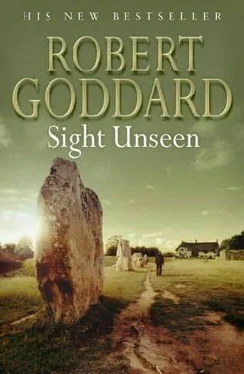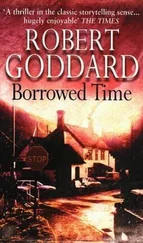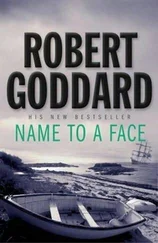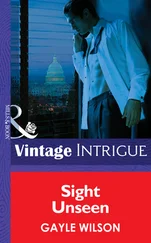Chesterfield was at this period winning his spurs as the great wit and cynic of Georgian political life. He had been a favourite of George II when the latter was still Prince of Wales, but offended the King after his accession by his attacks on the Prime Minister, Sir Robert Walpole. Chesterfield drifted into the opposition camp and the circles of the new Prince of Wales, George's hated son, Frederick.
Dayrolles meanwhile became a wealthy man on the death of his uncle and bought Henley Park, a country estate near Guildford, as his English residence. When the fall of Walpole restored Chesterfield's political fortunes and he was appointed Lord-Lieutenant of Ireland, Dayrolles accompanied him to Dublin as his secretary.
In 1751, Dayrolles married the eighteen-year-old Christabella Peterson, daughter of an Irish colonel. The couple had four children – a son and three daughters – and the marriage in no way affected his relations with Chesterfield, who had by then retired from active politics.
Chesterfield's old age was afflicted by tragedy – the sudden death of a beloved son – and illness. When he died, in March 1773, his godson-cum-friend was at his bedside. The Earl's last words were reported to be: 'Give Dayrolles a chair.'
Solomon Dayrolles died in March 1786, his widow Christabella in August 1791. Not until William Cramp produced his book Junius and his Works compared with the Character and Writings of the Earl of Chesterfield in 1851 did anyone suspect or suggest that Mrs Dayrolles might have written the letters of Junius at Chesterfield's dictation. Cramp's theory was generally ridiculed on account of the Earl's age and infirmity, the similarities between Mrs Dayrolles's handwriting and that of Junius dismissed as insignificant.
* * *
The handwriting. That was the nub of it. The similarities were too striking to be rejected without further study. Umber could remember thinking that when he had inspected some examples for himself, wildly improbable though Chesterfield's authorship of the Junius letters nevertheless seemed. He had learned what more he could about Christabella Dayrolles, though it had not been much and it had taken him nowhere. But where had he learned it from? There was no clue in the DNB entry for her husband.
Or was there? Umber read the two columns devoted to the life of Solomon Dayrolles again. Then he recognized a long-forgotten name. Ventry. The Dayrolles' eldest daughter, also called Christabella, had married, in 1784, the Hon. Townsend Ventry. There were some documents, categorized as the Ventry Papers, lodged in a county records office somewhere. Umber had gone to take a look at them.
But where had he gone? The dusty interior of one records office was much the same as another. He recalled an airless Midlands town on a hot afternoon. Derby. Nottingham. Leicester. Somewhere like that. But it was all he could recall.
* * *
Nor did he have time to dwell on the point, a glance at the Reading Room clock reminding him that he would be late for his appointment with Claire Wheatley if he did not stir himself. He made a hasty exit and headed for the street.
* * *
A taxi ride got him to his destination with several minutes to spare. Claire Wheatley's practice was not in Harley Street, but it was close enough to the medical heartland to count. She shared a smart address in Wimpole Street with an acupuncturist and a reflexologist.
The first-floor waiting room was empty and the door to the room beyond ajar. Somebody on the other side of it was playing back telephone messages. Umber half-pushed, half-knocked, at the door and went in.
Claire Wheatley was sitting at a desk, with her feet propped on one end, munching a sandwich between sips from a small bottle of mineral water. Umber did not recognize her. She was thinner and shorter-haired than the woman he had persuaded himself he remembered and looked several years younger, big-eyed and pixie-faced. She was dressed all in black: zip-fronted top, pleated mini-skirt, tights and suede boots. Her legs were long and shapely and hard not to notice, given how prominently they were on display. Her spikily cropped hair was black as well, though most of the colours of the rainbow glistened in her dangling ear-rings. They swayed kaleidoscopically as she put down the bottle, switched off the answerphone and swung her legs to the floor.
'Sorry,' she said, swallowing a mouthful of sandwich. 'I'd planned to have finished this before you arrived.'
'We did say one fifteen, didn't we?'
'Yeah. But my noon appointment… kind of overran.' She packed the rest of the sandwich back in its wrapper and stood up. 'Do you want to sit down?' She gestured towards a pair of soft leather armchairs as she rounded the desk. 'What about a cup of tea or coffee?'
'I'm fine, thanks.'
'You don't look it.'
'Sorry?' He stopped and stared at her.
'You don't look fine.' She smiled blithely. 'I'm just telling it like it is.'
'Do you take that line with your patients?'
'They're clients, not patients. And no, I don't. But this is my lunch hour. So, you get the real me, not the therapist. Please. Sit down.'
He lowered himself into one of the armchairs. Oddly, Claire made no move to sit down herself. She stood behind the chair opposite him, leaning over its back and frowning at him. 'Well,' he said, with an effort at ingratiation, 'it was good of you to agree to see me. Thanks.'
'What have you been doing since Sally died, David?'
'Teaching, mostly. In Prague for the last two or three years.'
'Prague's a beautiful city.'
'So it is.'
'I'd have looked you up when I was there, if I'd known.'
'When was that?'
'Summer before last.' She grimaced. 'Not good timing, actually.'
'The floods.'
'Exactly. Of course, I was just a visitor, so there was a kind of grim fascination about it. How did it affect you?'
'I was in England at the time. My flat had the Vltava flowing through it and there wasn't a thing I could do.'
'Lose much?'
'Not much. Just everything.'
Claire nodded thoughtfully, then walked slowly round the chair and sat down in it. She straightened her legs and leaned forward slightly, her hands clasped between her knees. She fixed him with her round-eyed gaze. 'Alice seems to think you're out of work. Is that right?'
'Yes and no.'
'It doesn't take a psychotherapist to spot the equivocation in that answer, David.'
'How I make a living is irrelevant.'
'Not really. You lost your wife five years ago. You lost most of your possessions – including most of your tangible reminders of Sally, I assume – eighteen months ago. Now you've lost your job. Sounds like there's a gaping hole where most people your age have a family, a career and a fairly clear idea of the direction they're headed in.'
'A hole you think I'm trying to fill by chasing after Sally's ghost?'
'That's not exactly how I'd put it.'
'How would you put it, then?'
'Are you sure you want to know?'
'I can take it, Claire.' Umber forced a smile. 'Remember. It's your lunch hour.'
'OK.' She smiled too, gently acknowledging the riposte. 'I have the advantage of knowing you quite well already, you see, through Sally. And through Alice too. Of course, that doesn't necessarily give me a balanced view, but even Alice admits you have some redeeming qualities. You're not a monster in anyone's eyes. You left Sally because you were worn out by her. Maybe you'd have gone back to her eventually. We'll never know, will we? Because Sally's dead. She committed suicide, David. You know it. I know it. Those left behind tend to blame themselves for not doing enough to prevent a suicide. We know that as well. Because we've both blamed ourselves for not saving Sally. But if she didn't kill herself – if she was murdered – well, we wouldn't be to blame, would we? We'd be off the hook.'
Читать дальше











